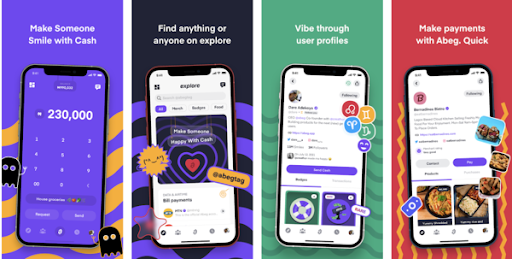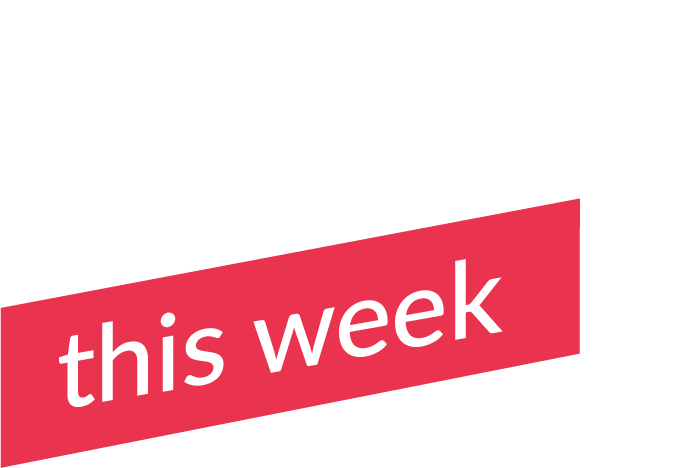Top of Mind: Happy Sunday! We are celebrating the newsletter’s 10th issue today! It’s a huge milestone and one that I’m proud of.
Most importantly, I’m grateful to you all for reading and coming back every Sunday to engage with the content. Here’s to a 100 more 🍾🥂
We’ve also launched the first iteration of the Market Trends section, and we’ll love to hear your thoughts. Kindly share your feedback by responding to this email 🙂
3 big things:
- Nigeria’s Twitter office rumours
- Instagram’s new safety update
- Zambia blocks big tech platforms
Is Twitter opening a Nigeria office?

The Short: Nigeria’s Minister of Communication Lai Mohammed recently announced that Twitter agreed to open an office in Nigeria as early as 2022.
New terms: Nigeria’s government and Twitter reps have been in talks since the shutdown of Twitter’s services in June. However, Lai Mohammed gave a readout of terms for restoring Twitter’s services in Nigeria:
- Register with the Corporate Affairs Commission (CAC) and establish a presence in Nigeria.
- Register with the regulatory authority, Nigerian Communications Commission (NCC).
- Appoint a senior company representative to take complaints directly from Nigeria to Twitter HQ.
- Appoint a “local agent” to manage federal government operations.
- Pay taxes to the Federal Inland Revenue Service (FIRS) according to Nigerian laws.
What it means: Some of the requests from the government was ripped out of India’s playbook, e.g., mandating that Twitter appoint a representative to escalate grievances from the government.
In addition, it’s unclear what taxation would look like – will Twitter be required to pay back taxes to cover years of operation, or does this take effect from the coming tax year?
There’s more… According to reliable sources, Twitter hasn’t agreed to open an office in Nigeria, despite the Minister’s proclamation. It’s a difficult decision for Twitter to make with these conditions, but the company is still in talks with the government and is hoping to come to an agreement soon enough.
Final thoughts: Whatever Twitter’s decision, it sets a precedent for how governments dictate the corporate existence of tech companies in their regions. A lot is riding on this, and I bet tech companies are having back channel talks on the domino effect of the terms from Nigeria’s government.
Instagram’s new feature couldn’t come fast enough

The Short: Instagram launched new tools to let users limit engagement from non-followers. The new feature is aimed at restricting trolls from harassing users on the platform.
What it means: The aftermath of the racist attacks on England’s Black players at the Euro 2020 final was enough reason for Instagram to double down on features to protect users.
What the features mean:
- Ability to limit comments and direct message requests
- Stronger warnings when posting offensive comments
- Hidden words feature – allows people to filter out abusive direct message requests
Long time coming: These new features address a fundamental problem on social media platforms – the existence of trolls and the need to protect users – public figures or not. Safety teams have become one of the fastest-growing teams in Silicon Valley, given the spike of harassment on social media.
Final thoughts: Nothing deters users from opening an app quicker than the reality of incessant online harassment – especially when this harassment targets super-users and isolates audiences who come online to engage with their content.
In a world of great competition between apps fighting for user engagement, tech companies can’t afford to alienate users by ignoring safety problems on their platforms.
Zambia blocks Twitter, WhatsApp & Facebook during presidential elections
The Short: In a move as old as time, Zambia blocked access to social media platforms during its presidential elections to restrict communication between voters during elections.
Why the shutdown: Zambia’s Ministry of Information and Broadcast services said the shutdown was aimed at curbing the spread of misinformation, but voters didn’t buy that argument.
What it means: The presidential elections were expected to receive the highest voter turnout in recent times, but what the government described as the need to mitigate election misinformation, voters saw as a clampdown on their rights.
The shutdown did not only affect private ISPs but state-owned providers as well.
Final thoughts: I think its time for African governments to pivot from the ‘internet shutdown’ playbook during elections. There should be stronger safeguards against misinformation than complete shutdowns. Plus, the shutdown didn’t give the incumbent government a leg up as expected. Instead, opposition candidate Hakainde Hichilema won the presidential election. Go figure.
Market Trends

Market Watch: Here’s how the stocks of companies, which dominated the news this week performed as of market close:
Apple:
- Despite the backlash against Apple’s new content scanning technology, the company’s shares soared 0.14%, closing out a favourable trading session – proving that sometimes, bad publicity doesn’t affect share prices.
Facebook:
- Facebook dominated the news this week with its launch of safety features and video encryption. The shares closed out at 0.15% higher than Apple’s 0.14%. Facebook shares are one of the best performing shares in the stock market this year.
Google:
- Google’s parent company, Alphabet Inc, beat out its competitors in today’s market trends soaring at 0.39% on an all-around great trading session at market close, despite losing a patent battle to my favourite speaker company Sonos.
Twitter:In its fifth consecutive day of losses, Twitter Inc closed at $15.80, down from a 52-week streak of $80.75 – underperforming competitors at market close – despite design changes.
New product spotlight

New app on the block: Heard of the buzzy new social payments app that has taken Nigeria’s social media scene by storm? Abeg app is a peer to peer payments service that allows users to send, receive and request money seamlessly.
The app is also the headline sponsor of Big Brother Nigeria’s current season.
First impressions: Abeg is the well-timed answer to our culture of giveaways and “send me money” requests. It’s a social payments app like I’ve not seen before and makes requesting money a fun endeavour.
App features: Users have public profiles and expressive badges to acknowledge payments. There’s the “giveaway” feature, which allows users to send others money randomly. Now, anytime you hear “abeg send me money”, you can easily pick up the app and send money instantly.
Verdict: Abeg app’s growth is impressive and one to watch out for. I’m curious about what a monetization play looks like. There’s potential for Abeg to be a top-grossing fintech app in Africa as it expands outside Nigeria.
—
That’s it for this week. See you next Sunday!
Help us celebrate our 10th issue by sharing the newsletter with your network to help us reach more people. Tell it on the mountain!

